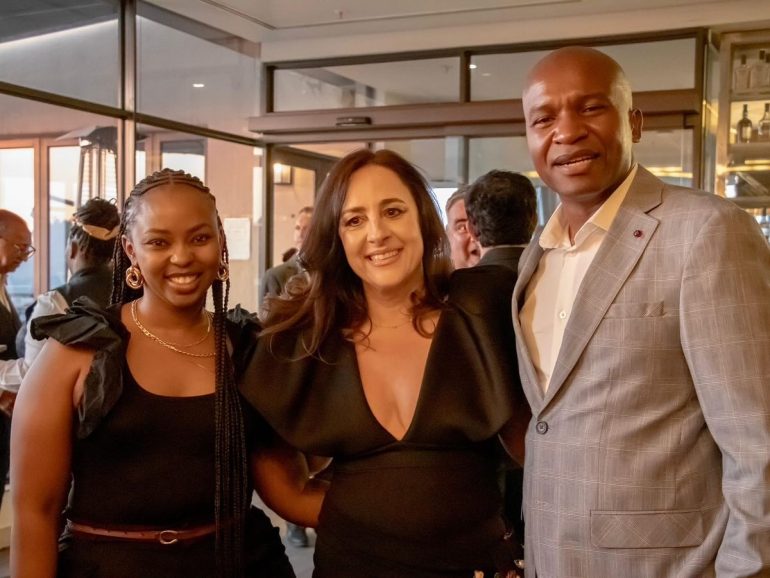- home Home
- keyboard_arrow_right PRESS OFFICE
- keyboard_arrow_right Posts
- keyboard_arrow_right[OPINION] Endurance is not a virtue in relationships
[OPINION] Endurance is not a virtue in relationships
By Nomali Cele
Iconic, multi-hyphenate entertainer and activist, Eartha Kitt, famously once said of her approach to relationships, “What is compromising? Compromise for what? Compromising for what reason? A man comes into my life and I have to compromise?” She went on to say that all her lovers and partners are invited to enjoy her with herself not that she must shrink to accommodate them.
In my language, the instruction is “bekezela” in isixhosa it’s “nyamezela,” you might also know it as “kgotlella” or “mamella.” This is the expectation that in heterosexual romantic relationships, especially in marriage, women must endure whatever turmoil their partner puts them through at whatever point of the relationship. It’s the belief that only women who endure will be worthy of a healthy, functional relationship.
The most alarming thing is that “bekezela” isn’t used to respond to petty issues such as having to tell your partner to put down the toilet seat down for the hundredth time or that he forgot an important milestone. It’s used to justify all manner of intimate partner abuse, infidelity and absent fathers who live in the same home. “Bekezela” is used to excuse someone drastically changing the relationship agreement and turn the narrative into “if you were a good partner/wife then you would adapt and endure.”
Whether the relationship eventually becomes worth the compromise you are expected to put in is still up for debate. But in a country like South Africa where the domestic violence statistics are staggering and the mortality rates in these cases even more jarring, it’s hard to see how “bekezela” is a philosophy that yields good results for the women involved.
And what place does the idea of ukubekezela have in our culture and society when we have just come from 2017, a year when femicide and intimate partner violence was highlighted in jarring and painful ways? The statistics and incidents were nothing new, but, for once, most of the country, as opposed to gender equality activists and advocates, was talking about the scourge.
In a survey conducted in 2016 and released in 2017, in a partnership between Statistics South Africa and the South African Medical Research Council, it was shown that one in five South African women over the age of 18 had experienced abuse. Four in 10 divorced or separated women had experienced domestic violence. The margin, according to the survey, shrunk even more when the women were poor with one in three women saying they’ve experienced abuse. Africa Check found that every four hours a woman is killed in South Africa and of those femicides, half happen at the hands of intimate partners.
Intimate partner violence is still very under-reported in this country, which suggests that “bekezela” is not falling on deaf ears. Some women who leave abusive relationships leave without financial means and need assistance with housing and job placement, which are crucial services South Africa has been failing to provide. The finincial hold abusers have in their relationships cannot
There’s also the stigma and shame that comes with a “failed” relationship and the potential that someone you love will tell you that the relationship wasn’t that bad.
And so what if the compromise you’re expected to make in a relationship isn’t one detrimental to your health and life? What if it’s the expectation that you put your dreams on hold? It doesn’t make the compromise any less diminishing because these compromises are generally one-sided, which means one person is always losing out on the opportunity fully be who they want to be.
During our “I Belong to Myself” dialogue in November, both Professor Pumla Dineo Gqola and Soul City Institute CEO, Lebogang Ramafoko, repeatedly brought up the many ways a patriarchal society grooms and expects women to compromise. It’s in the subtle messages such as “men don’t like women who are over-educated” or the belief that a woman who earns more than her partner is somehow emasculating him.
What then if the compromise you’ve been making in a relationship is one that has led to you shrinking your aspirations?
According to life coach, Thina Ngcingwana, who says of her service, “answers come from the client not the coach, as the client knows their journey better than the coach,” if you feel a relationship is stunting your development, you’ll be surprised to learn that it’s not just the relationship holding you back but “it would be the choice you make of staying in a relationship you feel no longer serves you.” She shared her views of the “bekezela” phenomenon from a self-development perspective.
“I would advise that compromise be lived out in a way that does not destabilise, confuse or frustrate the core of who you are as a person – your values, identity, need for safety,” says Ngcingwana. Compromise should work for both parties involved.
You have a right to say how you want to be loved and how you want to love without compromise. Endurance is not a virtue in relationships. We, as a culture, need to make it easier for women to leave.
Listen to Portia Kobue and gender equality activists, Zukiswa White of the Soweto Women’s Forum and Matokgo Makutoane of The Soul City Intitute discuss domestic violence
Listen to Michael Motsoeneg Bill discuss the reduction of barriers to reporting crimes of domestic violence and sexual offence
Written by: Kayafm Digital
Beyond 16 Days I belong to myself Intimate partner violence Love Matokgo Makutoane Mental health Opinion RELATIONSHIPS Soweto women's forum Zukiswa White
Similar posts
MORE ARTICLES

In Pictures: Mzansi Celebs serve style and drama at Durban July 2025

Five killed in KZN crash allegedly caused by Polo driver

From Benin to the world: Kidjo makes history as first black African on Hollywood Walk of Fame

Drama, cheating and Surprise guest: RHOD reunion delivers shocking revelations

Why Waterfall Estate’s 99-year lease is practically forever
QUICK LINKS
UpComing Shows

On the Beat
On the Beat with George Manyosi on Kaya 959. Saturday's, 18pm-21pm.
close
Touch of Soul
With T Bose
Kaya 959 takes back Sundays with A Touch of Soul, the only show bringing you soul and RnB music that touches your mind, body and spirit. The Best T in the City, T-bose takes you back to a time when music was made to last. A Touch of Soul is the perfect wind-down to your weekend. Sundays 14h00 to 18h00.
close
The Jazz Standard
with Brenda Sisane
The Jazz Standard with Brenda Sisane. Sunday's 12:00-15:00.
close
Spade of Hearts
With Xola Dlwati
WITH XOLA DLWATI: SATURDAYS 12:00 -15:00 Spade of Hearts is a fuse of love and soulful sounds, pulling at your heartstrings. Tune in for songs that will take you down memory lane. It is the sound that once dominated your playlist. It airs Sundays 12:00 – 15:00.
close
The World Show
With Nicky B
The World Show is informative, expansive, and largely pan-African. This is a musical journey that bridges generations and genres, travelling across continents and timelines, with in-depth interviews and features. ‘The World Show’ is a four-hour global journey through sound – featuring the freshest tracks from home and afar.
close
959 Music Weekdays
Kaya 959 Hits
Real. Familiar. Memorable. Kaya 959 brings you the music you know and love from our playlist. Uninterrupted. Thursdays 20h00 to 21h00
closeConnect with Kaya 959
DownLoad Our Mobile App
© 2025 Kaya 959 | On The Street On The Air








